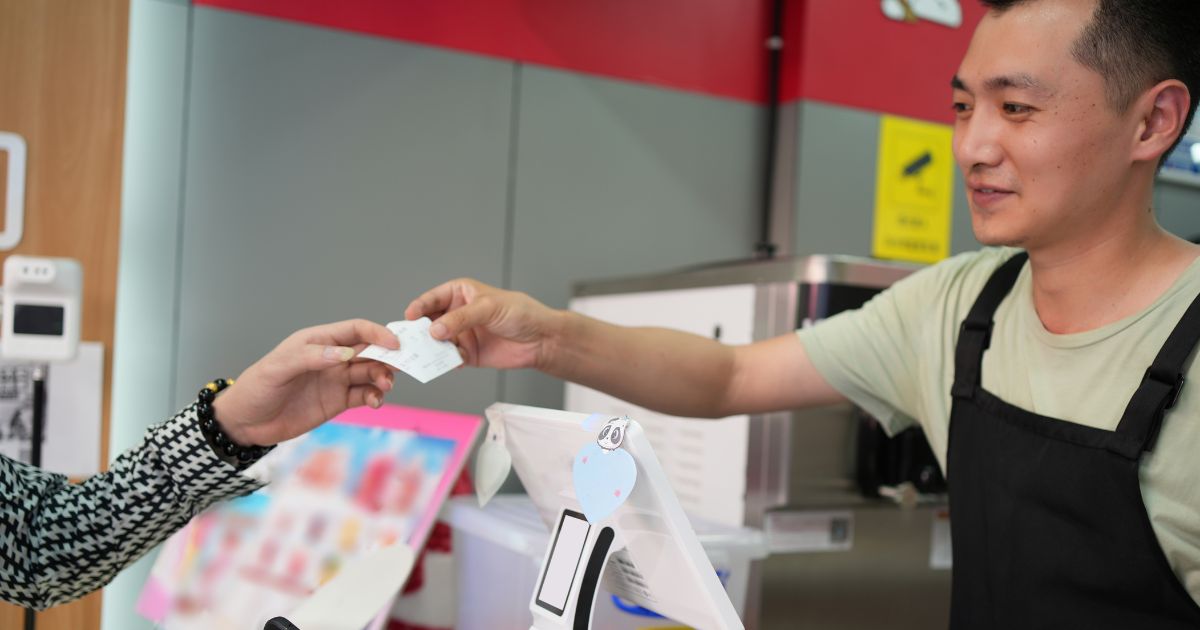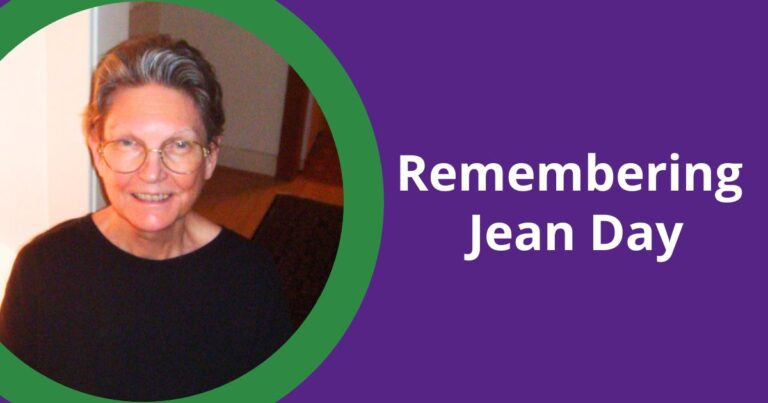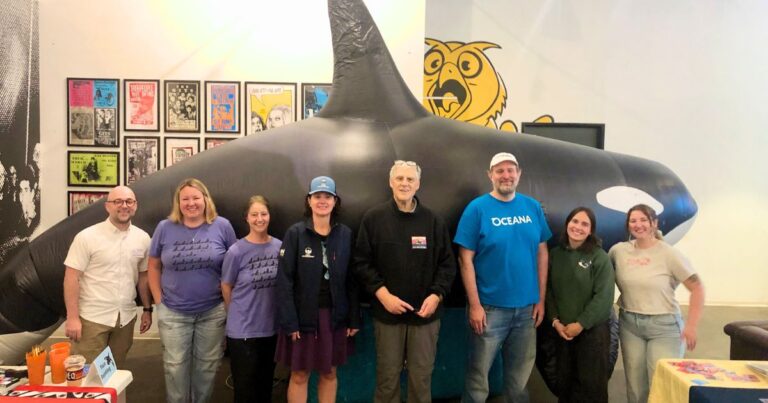Toxic-Free Future has a long history of fighting bisphenols—potent hormone-disrupting chemicals put into plastics (polycarbonate), food and drink can liners, and thermal receipt paper. And after years of advocacy with both government and retailers, we’re making BIG progress!
Getting hormone disruptors out of receipt paper
Washington state became the first in the nation to ban bisphenols as a class in receipt paper under the groundbreaking Safer Products for Washington law. This victory builds on years of dedicated work by TFF and will take effect in January 2026.
At the same time, retailers are stepping up to remove bisphenols from their receipt paper following our advocacy and that of our partners at the Ecology Center and Green America. Our most recent Retailer Report Card reveals that several of the biggest retailers in the country have already removed these harmful chemicals from receipts.
The combination of regulatory action and market shifts is the key to our success—together, they help make Americans healthier!
A long road to progress on bisphenols
Bisphenol A (BPA) was one of the first chemicals we worked to ban, due to its ability to mimic hormones and cause reproductive and developmental harm. Dr. Pat Hunt, a scientist at Washington State University, was among the first to uncover BPA’s dangers.
Our work led to successful bans on BPA in baby bottles and sippy cups in Washington state. We then turned our attention to other uses of bisphenols. We published a cutting-edge report called On the Money, which found that unregulated use of BPA has contaminated our money supply and that BPA easily transfers from receipts to paper money. We also campaigned successfully to catalyze leading grocery retailers, including Kroger, Albertsons, and Ahold Delhaize, to phase out BPA in their private-label canned food.
However, simply banning BPA wasn’t enough. The chemical lobby responded with a “whack-a-mole” approach, swapping BPA for similar toxic bisphenols like BPS, which pose many of the same health risks. A 2023 report we co-released revealed that almost 80% of paper receipts tested from large retailers in the United States contained BPS. That’s why we pushed for a comprehensive ban addressing the entire class of bisphenols in receipt paper and other products like drink can linings—a strategy that is now paying off.
Safer solutions are already here!
As part of Washington state’s ban on all bisphenols in receipt paper, it identified safer alternatives that are already in use, including Pergafast 201® and e-receipts.
The state also put in place a program to support small businesses in the transition to paperless receipts and safer paper options. It provides monetary incentives and technical assistance to ease the shift and to help avoid regrettable substitutes.
Meanwhile, our Mind the Store program continues to pressure retailers to eliminate bisphenols from their receipts. Companies are stepping up to phase out these harmful chemicals. As of the release of our 2024 Retailer Report Card, seven retailers that we evaluated have recently removed all bisphenols from their receipts, including Target, Walgreens, and CVS Health. And a number of other retailers like Best Buy, Costco, REI, and Whole Foods Market already removed the chemicals in prior years.
Washington’s ban, paired with proactive market shifts, shows that our approach works. And the impacts are felt beyond Washington state—bans by retailers mean safer receipts nationwide. By identifying safer alternatives and ensuring they are widely adopted, we can prevent companies from replacing one toxic chemical with another and make products safer for everyone!





